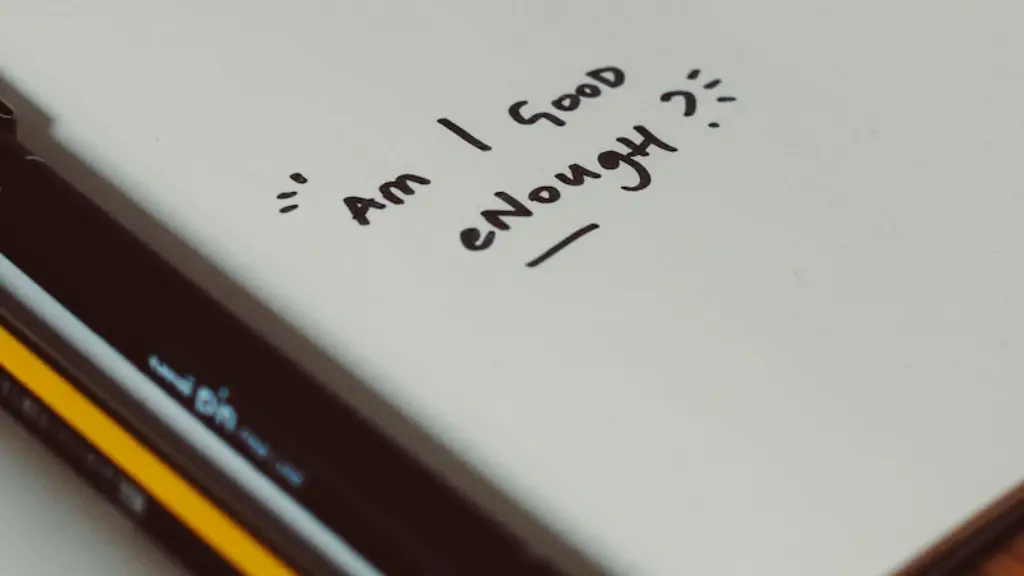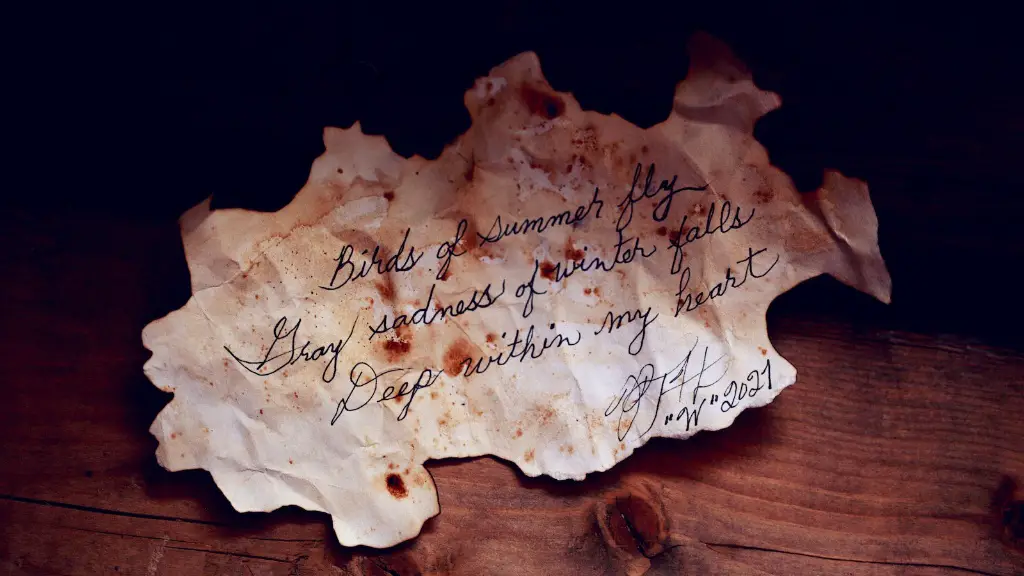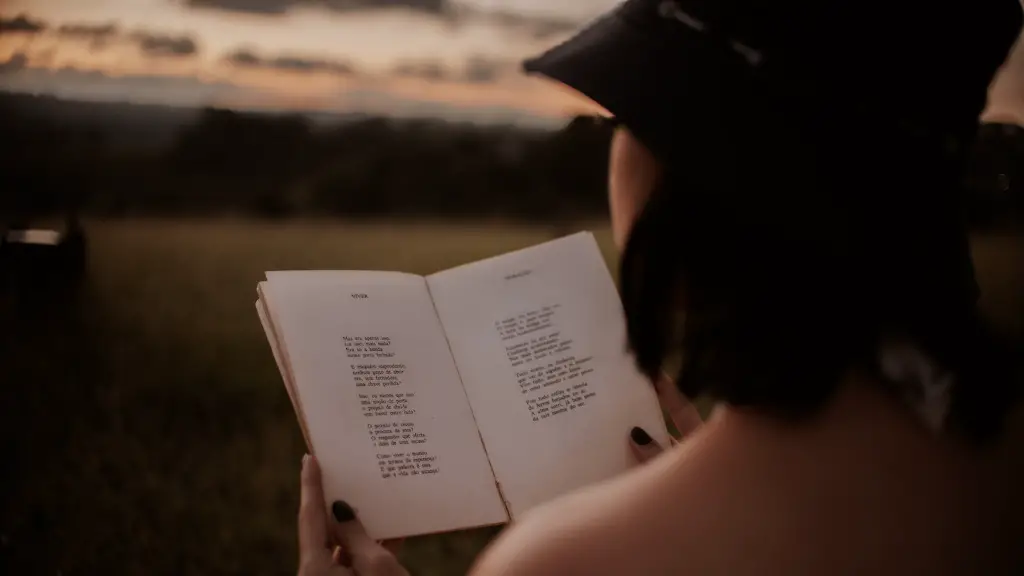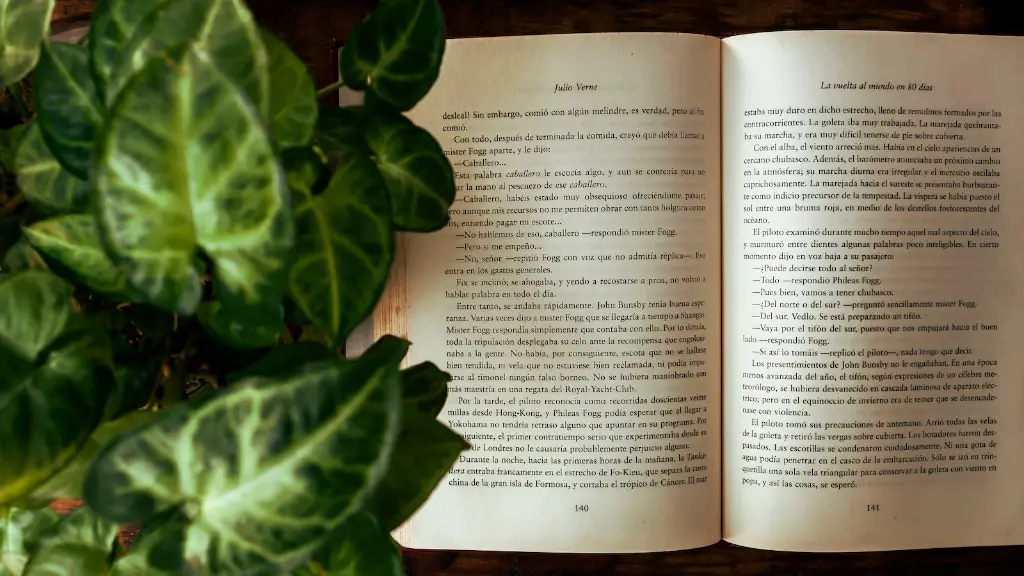What is Poetry?
Poetry is a form of art that has been in existence for centuries. It is a form of expression, a way of conveying an emotion or feeling without the need for words. It can be written in a variety of styles from the simple and heartfelt to the complex and elaborate. It is often used to express a point of view or to explore an idea. The ability to convey meaning and emotion without using literal language is what makes poetry a powerful form of communication.
At its core, poetry is about the use of language. It often involves clever use of rhyme, metaphor, and imagery to create a deeper level of understanding. Poets strive to evoke emotions and ideas in the reader that they wouldn’t be able to convey in any other way. Poetry is versatile; it can be used to tell a story, to convey a thought, to explore an emotion, or even to criticize or protest current events.
Benefits of Reading Poetry
Reading poetry can be beneficial to both the reader and the writer. It can improve one’s language skills, which in turn can help with writing and speaking. Poetry also opens the mind to a new type of thinking. It encourages creativity and gives readers a new perspective on the world. Reading poetry can also give one a deeper understanding of topics, as poets often drag readers into the complex emotions and ideas they explore. Finally, research has found that reading poetry can improve mental health, particularly in regards to reducing stress and anxiety.
Poetry Writing Techniques
Poetry writing is a process and often does not have a single correct form. It is up to the writer to decide which techniques and styles to use in order to convey their point. Several common techniques that poets use include internal and external rhymes, meter, alliteration, imagery, and metaphor. Poets may choose to focus on one or two techniques, or they may use a combination of several in order to create a unique piece. The best way to improve one’s poetry is to experiment with different techniques and styles.
Finding Poetry
Through the years, poetry has been shared in many forms. It can be found in traditional printed books, websites, magazines, and more. One of the most popular places to find poetry is online, where there are countless websites devoted solely to the form. There are also numerous poetry readings, competitions, and festivals held throughout the year that allow writers to share their work and gain exposure. Finally, many authors have created social media accounts and blogs in which they share their new work, giving followers a chance to explore their work and stay up to date with their projects.
The Power of Poetry
Poetry has long been embraced because of its ability to convey emotion and meaning without the need for literal language. It can communicate complex thoughts and feelings in a way that is both simple and beautiful. Poetry can bring people together and create a common ground on which readers can explore feelings and gain understanding. Finally, poetry has the power to bring comfort during times of difficulty, impart knowledge and insight, and inspire creativity.
Interpreting Poetry
Interpreting poetry can be an intimidating task for someone unfamiliar with the form. It is important to remember that there is no uniform answer or interpretation to a poem, as each reader may take different meanings from it. The best way to begin interpreting a poem is by breaking it down. Look at the individual words, images, and symbols used. Notice any patterns and use them to create a unique interpretation. One of the most rewarding parts of poetry is that it can be interpreted in a multitude of ways, so feel free to explore the poem and the many meanings it holds.
Historical Context of Poetry
Poetry has been around for centuries, with some of the oldest surviving examples coming from Ancient Greece and Rome. Over the centuries, poetry has taken various forms and been used to tell stories, describe cultures, and express emotions. As poetry has evolved, so has its techniques and styles, from the primitive oral traditions of ancient tribes to the complex and elaborate works of modern authors. Despite the changes, poetry has remained a powerful form of communication, reaching out to readers of all ages and backgrounds.
Different Types of Poetry
There is a wide variety of poetry out there, from classical works to more modern styles. Some of the most popular types of poetry include haiku, sonnet, spoken word, blank verse, and free verse. There are also many sub-genres, such as horror poetry, nature poetry, slam poetry, and rap. It is up to the writer to decide which type of poetry suits them best and use it to create something unique and meaningful.
Publishing and Performing Poetry
Once a poem is written, the next step is to consider publishing and performing it. Printed books are a popular option, as they allow the author to control how the work is presented and make it widely available. Alternatively, poets can also publish their work online or submit it to journals and magazines. Poetry can also be performed in a variety of ways, from traditional readings and slams to online performances. Performance poetry can be a great way for poets to share their work and interact with their audience.
Poetry Applications and Digital Technology
In recent years, the world of poetry has been greatly impacted by technology. There are numerous applications and websites devoted solely to the form, giving poets access to new ways of sharing their work and connecting with potential fans. Digital platforms have greatly boosted the reach of poetry, bringing it to an even wider audience. They also offer a convenient way for poets to share their work and collaborate, allowing them to expand their reach and find new opportunities to share their work.
Conclusion
Poetry is a powerful and ancient form of communication that has been used throughout the centuries to express emotions, tell stories, and impart knowledge. Whether it is read, written, or performed, poetry can bring comfort and understanding to readers, and allow them to explore topics in a unique and creative way. The recent embrace of digital technology has made sharing and publishing poetry even more accessible, allowing more people to explore and appreciate the form.



